 This post will not be as sardonic and Apple-fanboi-smug as the title suggests… I promise. Well, maybe.
This post will not be as sardonic and Apple-fanboi-smug as the title suggests… I promise. Well, maybe.
As a long-term Apple obsessive, there was never any question that I would fall into the iPhone camp, even when there was no real competition (and, seriously, there was no real competition until Android 2 and Windows Phone 7). But still, I wonder: what makes a person who is fresh to the world of smartphones choose Android over iPhone? This article on Macworld (reprinted… er, re”printed”… from Network World) raised the issue for me again. While it’s talking about a survey that shows most owners of “dumb” phones (a.k.a. “feature phones”) plan to replace them with another “dumb” phone, the author herself is an Android user, and the whole article skews in that direction.
Respondents to the survey cited high costs of data plans and the adequate capabilities of their feature phones as primary reasons not to switch, but then there’s this:
Others said they weren’t tech smart enough to have a smartphone, believing the apps and setup too complicated.
That really got me thinking, because it sounds like those users were imagining an Android phone in their future, not an iPhone. After all, one of the biggest selling points for iOS devices of all kinds (iPod touch, iPhone, iPad) is their ease of use, and specifically, the ease of purchasing, installing and using apps.
Much has been made of spurious comparisons between the iPhone/Android rivalry of today and the Mac/Windows rivalry of the ’90s. I don’t really find the comparison that relevant. While there are certainly some similarities between the “open” Android and the “open” Windows versus the “closed,” Apple-owned iOS and Mac OS, there are too many differences, both between Android and Windows, and between the Apple of the ’90s and the Apple of today: the specific nature of the licensing of Android compared to that of Windows, Apple’s status today as the world’s largest technology company and most iconic brand compared to its “niche player” status in the ’90s, etc.
So, I don’t really see Android as analogous to Windows in making the argument that history is destined to repeat itself and iOS will fall into a small — if highly profitable — niche. Apple’s in a much different place than it was when the desktop wars were raging, and Android presents a much different type of competition.
And yet, there are still some factors that remain relevant in the comparison, which I’ll get to in a minute. First, let’s consider the reasons a person upgrading from a feature phone to a smartphone would choose Android over iOS:
Carrier availability. More than anything else, the argument I’ve heard from people choosing Android phones over the iPhone was that the iPhone wasn’t available on their carrier of choice — usually their current carrier, and usually, specifically, Verizon. For the most part, people seem to like their carriers, and only switch if they’re having problems. And, from what I’ve heard, the only network that’s really had a lot of problems in recent years was, ironically, the only one that carried the iPhone in the US: AT&T.
There’s no question that the iPhone brought customers to AT&T, and little question that the iPhone is the only reason AT&T is still #2 in the US. Anecdotally, I myself switched to AT&T (from T-Mobile, which I was quite happy with) specifically to use the iPhone.
Now that the iPhone is coming to Verizon in a couple of weeks, it will be interesting to see how this changes things. But I am sure there are still customers who are loyal to Sprint or T-Mobile (or other carriers) who will choose an Android phone to avoid switching to either AT&T or Verizon. (And then of course there are the AT&T iPhone users who plan to switch to Verizon as soon as their contracts are up. But that’s for another post.)
Android is “open.” I say “open” in quotes because there has been plenty of discussion (just google “Android open site:daringfireball.net” for a taste; here: I did it for you) about how Android’s open licensing really just means it’s open for carriers to load up with crapware that can’t be uninstalled; or open to exploitation by hackers, viruses and privacy-invading stealth apps. But I’ll acknowledge that it is, also, open — to some extent — in the way its champions mean: users are not inside a “walled garden” as they are with Apple’s iOS. You can install apps freely, bypassing any officially sanctioned “app store”*, and you can tweak the system to your heart’s — or at least your carrier’s heart’s — content. But most users do not want to tweak their systems. They want something that just works, that they don’t have to think about, and that they are not afraid they’ll break. Which leads to…
Recommendations from “tech experts.” In other words, non-techie people asking their techie friends or relatives which phones they should buy. And here’s where we get into the territory where I see relevant analogies to the Mac vs. Windows era of the ’90s. Imagine a person who doesn’t know anything about smartphones but who is interested in entering this slightly daunting new world of technology. They have a friend or relative who they perceive as a tech expert — the person they’d call 15 years ago for help hooking up the free Lexmark printer that came with their new Gateway PC. Which they bought because they asked the same tech expert what kind of computer they should get. Today, that tech expert may be the main reason this person ends up with an Android phone.
The point here is: “tech experts” have different needs and different goals with technology devices than “average” users. They’re not afraid of getting “under the hood” of the system — in fact they want to do that — and they have little understanding or patience for people who don’t get technology. (Trust me, aside from my preference for Apple products, I’m there myself.) But both because of a general disdain for whichever technology they don’t use, along with a very real understanding that in making this recommendation they’re, willing or not, committing themselves to providing ongoing support, the tech experts are most likely to recommend whatever platform they’re most familiar with.
This is one of the reasons so many tech novices bought Windows computers the first time around, and I can see a very real possibility that this will be a factor in the growth of the Android platform, especially among new and technically inexperienced smartphone buyers.
But there are definitely some differences. First, I think Android represents an even more technologically remote territory for novices than did Windows in the ’90s. It’s more like the DMZ between Windows and desktop Linux. And aside from the staunchest supporters, few reclusive, bearded übergeeks are still trying to convince their grandmothers to run Linux on their home PCs. Second, technology isn’t as intimidating as it used to be. Computer use is far more widespread now, and getting into a smartphone after already learning (or, well, sort of learning) to use a computer is comparatively simple.
And finally, we come back to Apple. Apple is not in the position it was in back in the ’90s. For one, Mac market share has grown considerably, especially in the US, along with the growth of Apple as a general consumer technology brand. The success of first the iPod, and more recently the iPhone and iPad, has translated into success for the Mac. (Check Horace Dediu’s asymco blog if you need numbers and graphs to back that up.) Most importantly, more “tech experts” are now using the Mac than ever before. Part of this is because at its core, Mac OS X is Unix-based, just like Linux**. Which is a big part of why desktop Linux is doomed (again, a topic for another post). And as more “tech experts” become familiar with the Apple ecosystem, they embrace iOS devices along with the Mac, and they recommend iPhones to their friends and relatives who ask them for help.
So… where does that leave Android? I see all three of the above rationales for choosing Android over iPhone as diminishing in importance… some much more rapidly than others. I especially see the effects of #1 and #3 diminishing together, especially once the iPhone comes to Verizon next month. I’ll say it more explicitly, with extra emphasis: I expect Android to take a huge hit once the Verizon iPhone becomes available. I’d go so far as to predict that within a matter of months — certainly before the end of 2011 — the number of Verizon iPhone users will be as much as 10 times the number of Verizon Android users. Compound this (likely) huge and sudden impact with the ongoing effect of #3, and it paints a pretty clear picture for me. I think Verizon’s iPhone commercial says it all. The iPhone on Verizon is what people have really been anticipating all along, not an “iPhone killer” Android phone from Verizon. Verizon knows it.
Of course, all of this doesn’t mean Android will go away, nor should it. Ongoing competition from a strong alternative like Android is (probably) essential to keep Apple on top of their game. But I see two main (and increasingly marginal) reasons people will continue to choose Android over iPhone: either they are on Sprint or T-Mobile and don’t want to change, or because they are hardcore tinkerers who will never be satisfied with the kind of controlled operating environment Apple offers. But for everyone else, the choice is about to become a whole lot more obvious.
As Marco Arment insightfully observed, the primary choice has been iPhone vs. (Android on) Verizon. Now users will have more options, with iPhone and Android (and Windows Phone 7) available on both AT&T and Verizon. But I think the choice is mainly going to become AT&T vs. Verizon, with the implication being that it’s (probably) the iPhone on either network. And since Apple has ensured that the carriers can’t significantly differentiate the same device with apps or features, the way they do with other manufacturers’ phones, it’s really all going to come down to the network. AT&T is probably going to take almost as big of a hit as I anticipate Android taking.
That too is a topic for another post.
* Registered trademark by Apple pending.
** Yes, reclusive-bearded-übergeeks, I know neither Mac OS X nor Linux is technically Unix. But the difference is irrelevant to everyone but us.


 This post will not be as sardonic and Apple-fanboi-smug as the title suggests… I promise. Well, maybe.
This post will not be as sardonic and Apple-fanboi-smug as the title suggests… I promise. Well, maybe.